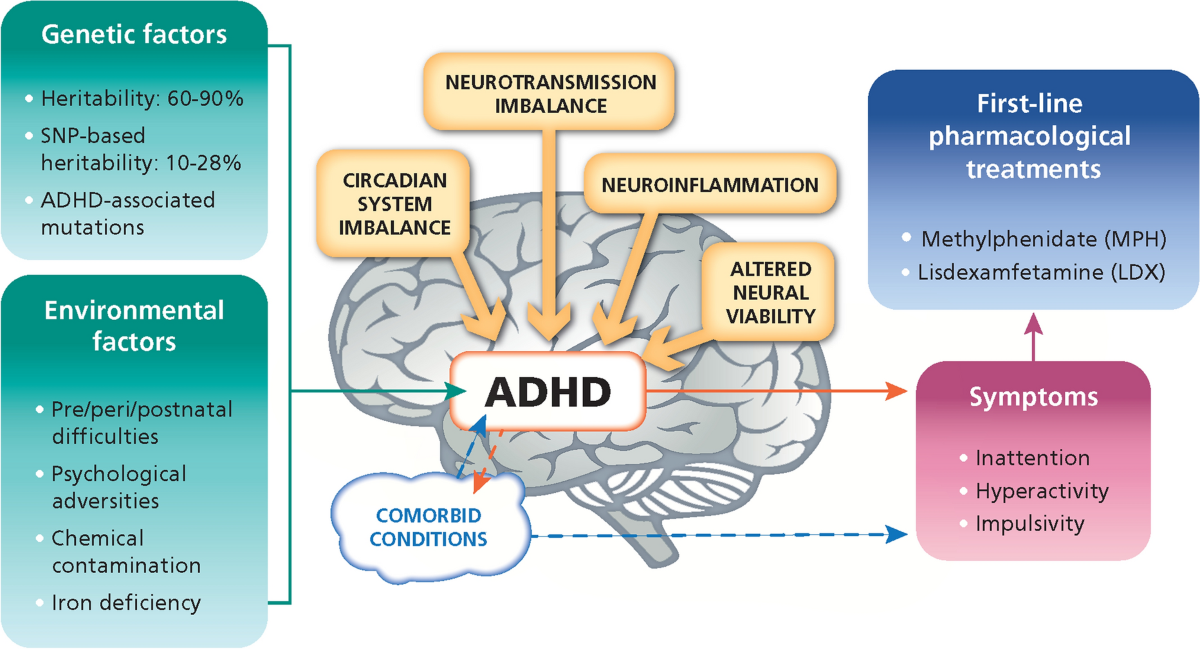Medication Fatigue: When It’s Time to Rethink Your ADHD Treatment Plan

Managing Attention Deficit Hyperactivity Disorder (ADHD) often involves a complex balancing act. For many, medication is a cornerstone of treatment, helping to improve focus, reduce impulsivity, and regulate behavior. However, over time, some individuals experience what’s known as medication fatigue — a phenomenon where the initial effectiveness of ADHD medications wanes, side effects become more burdensome, or simply the daily routine of taking medication becomes exhausting. Understanding medication fatigue and knowing when to reconsider your treatment plan is crucial for maintaining long-term well-being and productivity.
What is Medication Fatigue?
Medication fatigue refers to the physical, emotional, and mental exhaustion that arises from the prolonged use of medications. For people with ADHD, this can manifest in several ways: decreased medication efficacy, increased side effects, frustration with managing medication schedules, or a feeling of being dependent on drugs to function. It’s not just about the medication losing its effect; it’s also about the wear and tear that long-term treatment can impose on the patient’s quality of life.
Why Does Medication Fatigue Occur in ADHD?
ADHD medications, including stimulants like methylphenidate and amphetamines, as well as non-stimulants like atomoxetine or guanfacine, work by altering brain chemistry to enhance attention and control impulses. While effective, these medications can sometimes lose their potency as the brain adapts to their presence, or side effects may become more pronounced over time.
Several factors contribute to medication fatigue:
Tolerance Development:
The brain can develop tolerance, requiring higher doses to achieve the same effect, which may increase side effects.
Side Effects Accumulation:
Common side effects such as insomnia, appetite suppression, mood swings, or anxiety can intensify, leading to discomfort.
Psychological Burnout:
Taking medication daily can cause emotional exhaustion, especially if it feels like a lifelong commitment or if expectations for improvement are unmet.
Lifestyle and Stress:
Changes in life circumstances, stress, or co-existing mental health issues can influence how well medications work and how patients perceive their treatment.
Signs You Might Be Experiencing Medication Fatigue
Recognizing medication fatigue early can prevent a downward spiral in mental health and daily functioning. Here are some signs that it might be time to rethink your ADHD treatment:
Diminished Effectiveness:
Your medication no longer seems to improve your focus or reduce hyperactivity as it once did.
Increased Side Effects:
You notice side effects becoming more frequent, severe, or disruptive to your daily life.
Emotional Drain:
Feelings of frustration, hopelessness, or burnout about taking medication regularly.
Inconsistent Symptom Control:
Fluctuating symptom management that leaves you feeling unstable or unpredictable.
Medication Resistance:
Difficulty maintaining a regular medication schedule due to dislike, forgetfulness, or reluctance.
Desire for Alternative Approaches:
You begin to wonder if there are other methods, either medical or non-medical, to manage your ADHD better.
When and How to Rethink Your Treatment Plan
If you’re experiencing medication fatigue, it’s important not to make changes independently but rather to collaborate closely with your healthcare provider. Here’s what you can do:
Schedule a Comprehensive Review:
Book an appointment with your prescribing doctor or psychiatrist to discuss your symptoms, side effects, and overall experience with your medication. Be honest and detailed — this will help your provider tailor your treatment more effectively.
Evaluate Medication Adjustments:
Your doctor might consider altering the dosage, switching to a different medication, or introducing a non-stimulant alternative that might better suit your current needs.
Consider Medication Holidays:
Under medical supervision, short breaks from medication can sometimes reset tolerance levels and reduce side effects, though this approach isn’t suitable for everyone.
Explore Adjunct Therapies:
Behavioral therapy, cognitive-behavioral therapy (CBT), coaching, and lifestyle changes such as exercise, sleep optimization, and dietary improvements can complement or sometimes reduce the need for medication.
Address Co-occurring Conditions:
If anxiety, depression, or other mental health challenges are present, treating these alongside ADHD might improve overall medication tolerance and effectiveness.
Monitor and Adjust Continuously:
ADHD treatment is not “one-and-done.” Regular check-ins and willingness to adapt are vital, especially during life changes such as school, work, or family transitions.
The Role of Non-Medication Strategies
Medication fatigue highlights the importance of a holistic approach to managing ADHD. Non-medication strategies can empower individuals to cope better and potentially lessen reliance on drugs:
Mindfulness and Stress Reduction:
Techniques like meditation and yoga can help improve focus and reduce impulsivity.
Organizational Skills Training:
Tools such as planners, reminders, and apps can aid in managing daily tasks without solely relying on medication.
Exercise:
Physical activity increases dopamine naturally, improving attention and mood.
Sleep Hygiene:
Ensuring consistent, quality sleep can significantly affect ADHD symptoms.
Nutrition:
Balanced diets that stabilize blood sugar and reduce inflammation support brain health.
Final Thoughts
Medication fatigue is a real and often under-discussed challenge for those living with ADHD. It doesn’t mean that treatment has failed — rather, it signals a need for reassessment, open communication, and sometimes a change in direction. ADHD is a lifelong condition, and effective management requires flexibility, patience, and a comprehensive plan tailored to your evolving needs.
If you or a loved one is feeling overwhelmed or disillusioned by your current ADHD medication regimen, take heart: help is available, and there are many ways to regain control over your symptoms and quality of life. The key is to listen to your body and mind, seek professional guidance, and remember that your treatment journey is uniquely yours.
Resource: https://songtr.ee/artist/11846156/Buy-Adderall-Online-Same-Day-Shipping-via-Carryout-Delivery










